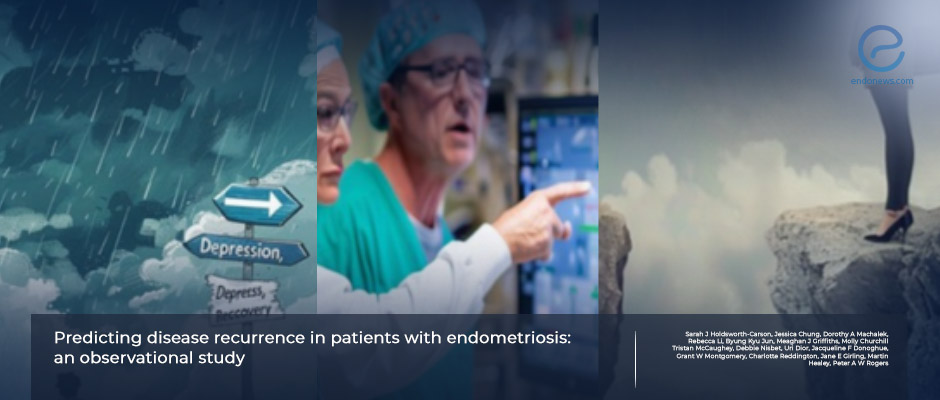An observational study on predicting endometriosis recurrence risk.
Oct 4, 2024
Adenomyosis usually contributes to an increased risk of endometriosis recurrence.
Key Points
Importance:
- The true prevalence of endometriosis is unknown, and the determinants for recurrence have not been established.
Highlights:
- After the diagnosis of endometriosis, clinicians should consider the presence of bowel lesions, adhesions, and adenomyosis as reasons to increase the risk of recurrence.
What's done here:
- An Australian team conducted this observational study on patients who underwent laparoscopic surgery either for pelvic pain and/or treatment of endometriosis in a tertiary clinic.
- This is a secondary analysis of prospective research and was performed according to the STROBE statement.
- A total of 794 women completed a presurgery questionnaire covering self-reported gynecologic and non-gynecologic variables.
- Also, the patient's medical information, surgical-ultrasound reports, rASRM endometriosis scores, and pathological findings, were collected.
- Women were classified into 2 groups: self-reported and surgically confirmed analyses;then were also divided into 3 cohorts as non, single, and recurrent endometriosis.
- Hospital surgical records were examined to determine more than one endometriosis-diagnosed surgery and recurrence location.
Key Results:
- In the surgically confirmed analyses cohort, 288 participants had a single diagnosis of endometriosis, and 188 had no endometriosis (controls).
- The recurrent endometriosis groups in both self-reported and surgically confirmed cohorts had increased odds of having adhesions, higher rASRM scores, and the presence of bowel lesions and adenomyosis compared to those with a single diagnosis of endometriosis.
- Recurrent endometriosis cases showed reduced odds of hormone medication usage compared to controls. However, the same difference was observed when a single diagnosis of endometriosis was compared to non-endometriosis control cases.
Limitations:
- Since leaving remnant tissueduring surgery is the most important issue for endometriosis recurrence, the limitation is the lack of information about the surgeon information concerning the remaining ectopic endometriotic tissue.
Lay Summary
Endometriosis presents in various ways, and improper management can lead to recurrence. Studies show that the recurrence rate can range from 6% to 67%. Factors that may increase this risk include having severe or deep forms of the disease, being younger, and opting for conservative treatment. It’s important to differentiate between suspected recurrence based on symptoms and recurrence confirmed by a histopathological examination after complete surgical removal.
To investigate those factors that increase the recurrence risk of endometriosis, Holdsworth-Carson et al. from the Department of Obstetrics, Gynecology. and Newborn Health of University of Melbourne, Australia, set up an observational study in a tertiary clinic between May 2012 and March 2019.
Totally 794 women were stratified into 2 analytic groups based on self-reported or surgically recorded recurrent endometriosis. In both cohorts, patients were classified as single diagnosis, recurrent diagnosis, and no endometriosis categories.
The researchers identified several significant factors linked to recurrence, including adhesions (scar tissue), high rASRM scores that measure disease severity, bowel lesions, adenomyosis, pelvic pain requiring emergency care, younger age at first menstruation, higher number of pregnancies, high blood pressure, and older age. Survival analysis also highlighted the importance of bowel lesions, adenomyosis, and adhesions as risk factors.
The study showed that bowel endometriosis is closely related to adhesions and fibrosis. Therefore, adenomyosis, bowel lesions, and adhesions increase the severity of the disease and create a suitable environment for endometriosis to reoccur. Another significant association was found between recurrence and decreased hormone medication use.
In their final comment, the authors emphasized the need for further research to validate their findings. This intriguing study was recently published in BMC Medicine.
Research Source: https://pubmed.ncbi.nlm.nih.gov/39113136/
reoperation recurrence prediction risk rate adenomyosis bowel lesions pelvic pain younger age higher gravidity endometriosis

